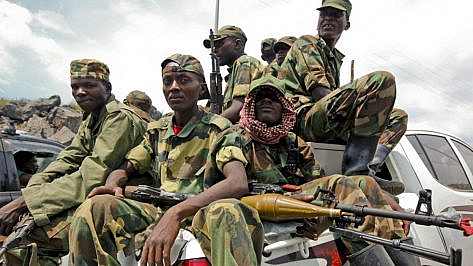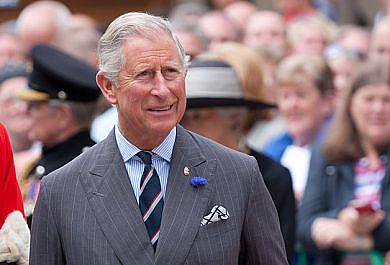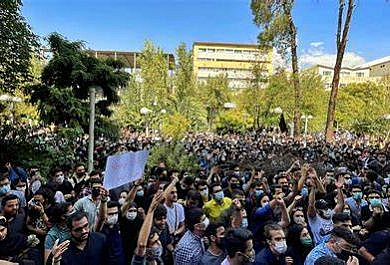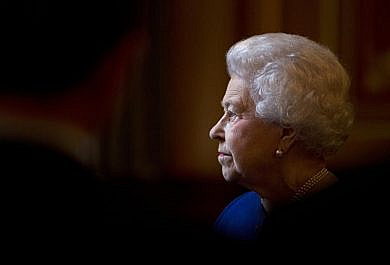After Niger’s elected government was overthrown in a coup d’état, a bloc of West African nations gave the coup plotters an ultimatum: restore the government of President Mohamed Bazoum or face invasion.
Summary
After Niger’s elected government was overthrown in a coup d’état, a bloc of West African nations gave the coup plotters an ultimatum: restore the government of President Mohamed Bazoum or face invasion. The deadline passed this morning, and it’s unclear what comes next.
- Bazoum was betrayed by his own presidential guard in late July and has been imprisoned since the coup. He has called for the international community – and the United States in particular – to intervene and restore his government.
- The Economic Community of West African States (ECOWAS) took up his call and ordered the coup plotters to stand down by Sunday Aug. 6 or face military intervention. The bloc’s defense chiefs finalized an intervention plan on Friday and urged their militaries to prepare for conflict.
- Gen. Abdourahmane Tchiani, who seized control of the country and declared himself the new head of state, refused to back down and shut down Niger’s airspace to prepare for a possible invasion.
- The military leaders of Mali and Burkina Faso vowed to back the Niger junta, setting the stage for a regional conflict between the three military regimes, who are backed by Russia, and ECOWAS, which is supported by the United States, France, and the international community.
- The ECOWAS ultimatum is no empty threat. The regional bloc is made up of 15 nations including Nigeria, the most populous country in Africa, and has a history of successful military interventions in the region.
- Since 1990, ECOWAS has intervened in Liberia, Sierra Leone, Guinea-Bissau, Cote d’Ivoire, Mali, and most recently Gambia, where the bloc restored democracy after an abortive coup attempt by the outgoing president.
- Tchiani and his fellow coup plotters cited the security crisis caused by ongoing regional Islamist insurgency as the justification for their putsch, which follows similar military coups in neighboring Mali and Burkina Faso.
- Niger is the largest country in West Africa and had been seen as a relatively stable country compared to its neighbors. Bazoum had been the first democratically elected president to succeed another democratically elected president since Niger achieved independence in 1960.
- The US and France both have military bases in Niger to conduct counter-terrorism operations against al-Qaeda and Islamic State-linked Islamist groups in the Sahel, the region just south of the Sahara Desert that includes Niger, Mali, and Burkina Faso.
- More than 1,100 American personnel are currently stationed in Niger. Niger is also strategically important for its large uranium deposits that account for 7 percent of global supplies.
- Nigeria’s Senate urged the president to look for non-miliary alternatives, but Senegal and Cote d’Ivoire expressed support for intervention. After the deadline passed, the heads of state of ECOWAS announced plans to meet on Thursday to discuss their next steps. The fate of the region hangs in the balance.
![]()
- The New York Times reiterated that this is “not another coup as usual” in contrast with other recent military putsches in West Africa. Instead, Niger appears to be a “red line” for both West Africa and western allies like the United States and France.
- The Guardian noted that the Nigerien coup is the seventh to occur in West and Central Africa in the last three years. Military delegations from two of those countries, Mali and Burkina Faso, were seen in Niamey, the Nigerien capital, on Monday.
- CNN reported the United States, France, and the European Union have all cut of financial aid in the wake of the coup. These sanctions are in addition to the travel ban and asset freeze for Nigerien military personnel imposed by ECOWAS last week.
![]()
- The Wall Street Journal observed the Niger junta’s decision to cut military ties with France, Niger’s former colonial power, is another sign of the pro-Russian turn of Africa’s military regimes. Mali, Burkina Faso, and the Central African Republic have all grown closer with Russia in recent years and several have hired Wagner Group mercenaries to help them maintain power.
- Secretary of State Antony Blinken announced the US embassy in Niger was partially evacuated at the end of last week. Fox News reported the US embassy in Niamey remains open although US citizens are being encouraged to leave the country.
- The Washington Free Beacon noted the evacuation came much earlier than a similar pullout earlier this year: “The United States was criticized for its handling of the evacuation of U.S. citizens in Sudan after the sudden eruption of violence between the military and the well-armed Rapid Support Forces paramilitary group on April 15 turned residential areas into war zones and prompted hundreds of thousands of people to flee.”
© Dominic Moore, 2023






